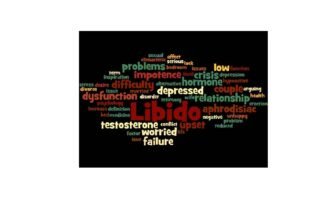Introduction
A thyroid issue will eventually affect more than 10% of Americans. The unfortunate side effect of hypothyroidism is weight gain.
The thyroid, a gland in your neck that secretes vital hormones, can become underactive, which leads to the medical disease known as hypothyroidism. Conversely, hyperthyroidism is a condition in which the thyroid is overactive.
Frequent weight gain is one of the first indications of anything wrong with the endocrine system. Unfortunately, losing that additional weight can be difficult, especially if other hypothyroidism symptoms spiral out of control.
When you have hypothyroidism, is it possible to reduce weight?
Your weight can be loose by adapting dietary and eating adjustments and exercising while having hypothyroidism.
At first, receiving a hypothyroidism diagnosis and beginning treatment can feel like a mountain to conquer. You can have secondary hypothyroidism or Hashimoto’s disease-related thyroid problems. Pituitary dysfunction is the root cause of secondary hypothyroidism.
But do not worry!
We can walk you through easy steps to lose weight with hypothyroidism if you struggle with gaining weight. In addition, there are natural therapies for hypothyroidism weight reduction without resorting to medicine.
Remember that these adjustments should be considered a new way of life rather than a temporary thyroid diet. However, we want your modifications to stick. So, here are the top suggestions for treating hypothyroidism and losing weight, from stress management to dietary habits.
- You must have it diagnosed.
It’s time to check with your doctor if you’re exhibiting hypothyroidism symptoms, including fatigue, unexplained weight gain, increased cold sensitivity, constipation, and dry skin. You will undergo a blood test to determine your TSH level.
Following a diagnosis, you’ll probably begin treatment for hypothyroidism, which is usually relatively straightforward: You’ll be given a prescription for a cheap, secure, and efficient synthetic hormone to replace the one your body should produce naturally. TSH levels will return to normal after taking medicine.
However, at-home thyroid testing should be avoided, especially if you’re looking for the cause of an unexpected weight gain. According to the doctor, even if the results are accurate, it will probably be challenging to comprehend how to interpret the test or what steps should be taken if you see an aberrant impact.
- Cut out Sugar
Sugar is a bad guy. Sugar is an inflammatory substance in addition to being tied to the obesity pandemic that is roiling the nation. There are so many distinct health problems associated with this chemical.
Minimize the intake of sweets in your hypothyroidism diet plan for weight loss. Simple carbs also decompose into glucose or sugar. Because of this, your new meal plan does not include sweet, bread-based goodies or empty carbs like chips and cookies.
Sugar must also be eliminated from your diet, but other solutions exist.
- Take a proper healthy diet
Reduce your daily calorie intake to lose weight, but do so safely. Low-calorie diets should be followed in a relaxed manner. Weight gain will result from your body storing calories. So balance your daily calorie consumption with your daily calorie expenditure instead.
One to two pounds per week of weight loss is a safe target. However, you should expect to lose around a pound every week if you consume 500 fewer calories per day on average. For example, you can lose 2 pounds weekly by cutting 1,000 calories from your daily diet.
A simple way to reduce your calorie intake is to eliminate all meals you don’t need. These foods—cookies, cake, sodas, and candy contain empty calories. You will gain weight if they do not provide any nourishment.
Instead of dessert, consume a bowl of fresh fruit dusted with calorie-free sugar. Replace soda with sparkling water and lemon. Instead of white bread and crackers, choose whole-grain alternatives.
A further way to reduce calories is to eat more meals that are high in energy. Per bite, these foods have fewer calories. As a result, you’ll feel fuller and keep it longer with them.
Consider substituting a bowl of vegetable soup for pizza for lunch. The soup will fill you up because it is low in calories and heavy in water. However, your body will swiftly burn through a slice of pizza’s approximately 300 calories and rich carb content, leaving you hungry for more.
Your meals should focus on low-calorie, high-nutrition fruits and vegetables. In addition, consider tofu, fish, or fowl as a lean protein source. Naturally, consult your doctor before making any significant dietary changes. They should assist in directing and supervising your progress.
- Hydrate Yourself
You may feel tired, exhausted, and achy when you are dehydrated. It is because your metabolism usually runs when you drink enough water. Also, it can relieve hunger, reduce bloating, and help with digestion and excretion.
Healthy adults’ recommended daily water intake is 11.5 cups for women and 15.5 cups for men, even though there is no official standard for this. It is because we get about 20% of the fluid we consume through our diet.
Therefore, men would need about 13 cups of water or other liquids to achieve daily fluid requirements, and women would need about 9 cups of water or other drinks.
- Make a move
The other crucial element of any weight loss plan is exercise. Your body becomes a more effective fat-burning machine with regular exercise—your ability to burn calories during activity and while at rest increases if you exercise more frequently.
To reduce weight, do 300 minutes a week of cardiovascular exercises, such as running, riding a bike, or playing tennis. It equates to roughly an hour a day, five days per week. If you can only dedicate part of the hour at once to working out, divide your program into 10- or 20-minute chunks.
Choose a convenient activity that you enjoy to ensure that you stick with it. For example, you can go for a morning stroll around your neighborhood, use an exercise DVD, or enroll in a spin class at your neighborhood gym. Even mowing the lawn or washing the floors counts as exercise if it makes your heart race and perspires.
Exercising regularly will also boost your energy, preventing the lethargy that hypothyroidism can bring on. However, before beginning any new exercise program, consult your doctor because an underactive thyroid might cause your heart rate to slow.
Start slowly and progressively increase your pace and workout time only when you are ready to do so. Ask your doctor again about performing particular movements or following a fixed schedule.
- Utilize time-limited eating
You might wish to attempt time-restricted eating to maintain your weight (or drop more) (also called intermittent fasting or IMF).
The basics are as follows:
- Choose a specific time slot in your day during which you will eat to practice time-restricted eating.
- To avoid blood sugar rising while you sleep, close this window should be no less than two hours before bedtime.
- The gap between your final meal and your next meal should be at least 12 hours.
- When attempting to lose weight, covering your fasting window to 14 or even 16 hours is also more beneficial.
Time-restricted eating is an effective strategy for losing weight. This type of fasting has shown promise in trials including human and animal participants for weight loss and even improved metabolic health.
Remember to see your doctor before beginning this food regimen if you have diabetes or hypoglycemia and cannot safely increase your fasting window.
- Utilize relaxation techniques
The leading cause of an underactive thyroid is stress. An average hormonal balance might result from reducing stress. Your metabolism will pick up if your thyroid is restored to normal.
Additionally, stress has been connected to obesity in general, independent of hypothyroidism. The leading cause of this is long-term exposure to high cortisol levels.
Here are some viable strategies for stress reduction:
- For stress alleviation, 8 hours of good quality sleep are required.
- Before going to bed, turn off your technology. Sleep quality can be improved by avoiding blue light exposure an hour before bed.
- Wear sunglasses that block blue light. We also advise everyone to use blue-light-blocking eyewear when using electronic devices after sunset, lowering cortisol levels. Please enter PRIME HEALTH’s promo code for 10% off from Ra Optics on our favorite blue light-blocking eyewear.
- Another strategy to reduce stress and excessive cortisol production is meditation.
- Spending time outside, especially in primarily green areas, can help you feel less stressed and have cortisol-related issues.
Reducing stress levels is one of the best strategies to lose weight with hypothyroidism without medication.
- Remember to have your doctor recheck your weight.
Instead of just having your prescription filled every month if you’re on thyroid medication, it’s crucial to closely monitor your condition with your doctor.
“Body weight has an impact on the dosage of thyroid medicine. So, according to Isaacs, your dose may need to be changed if you lose or gain weight. In addition, if your drugs aren’t customized for your body, this could also impact future weight gain or loss.






